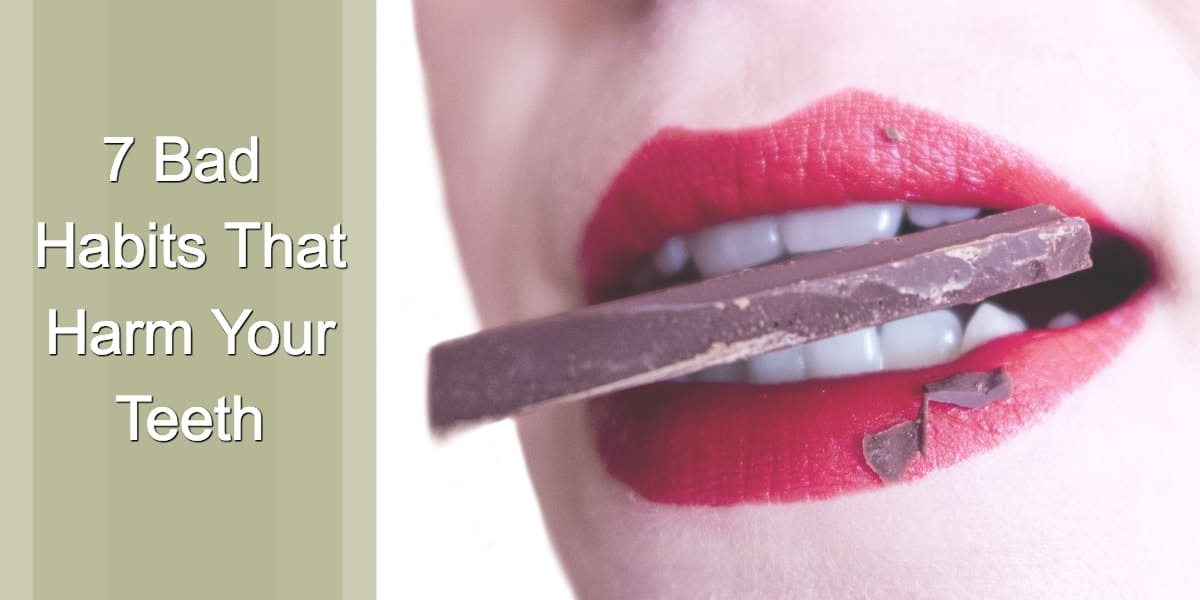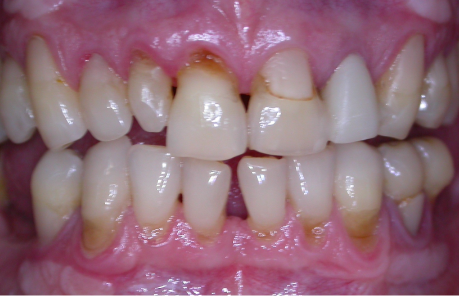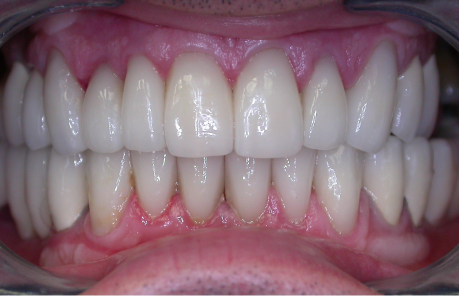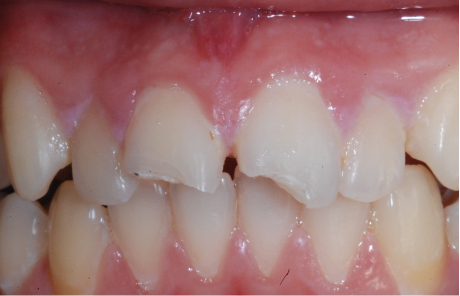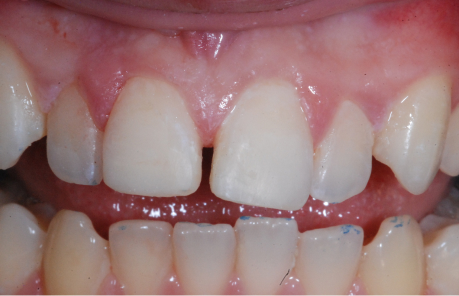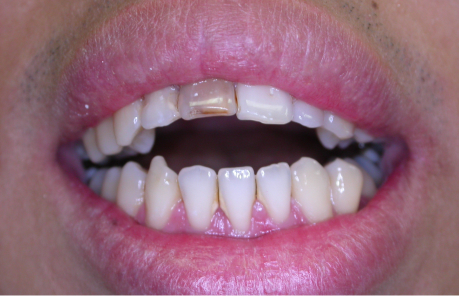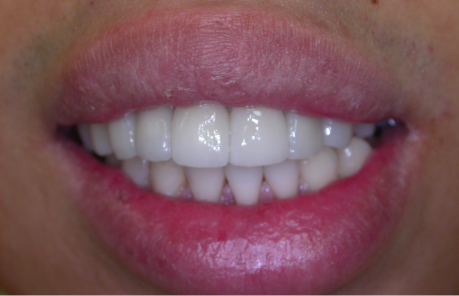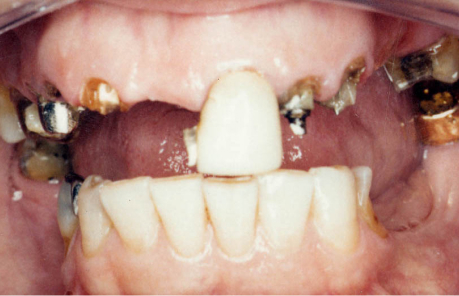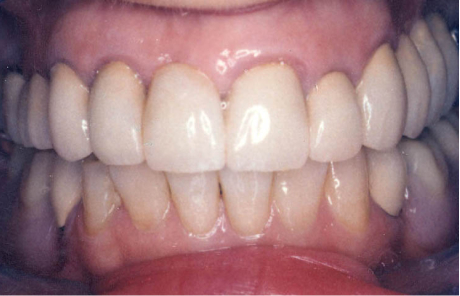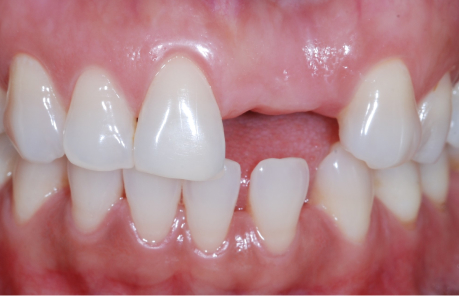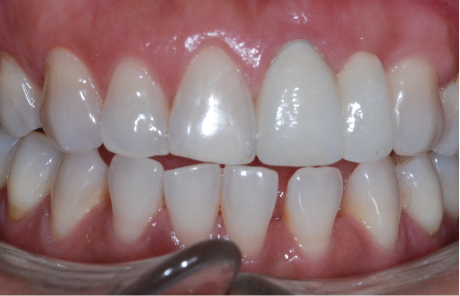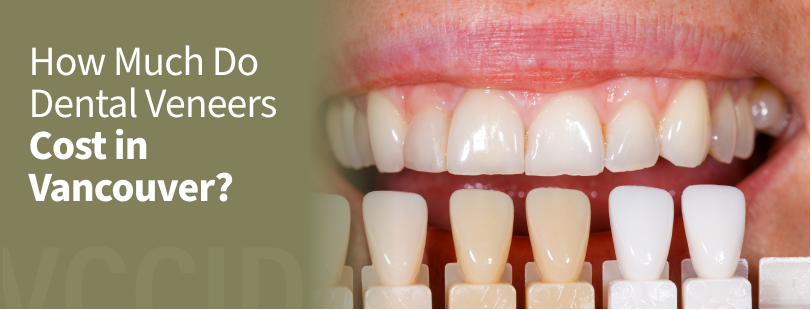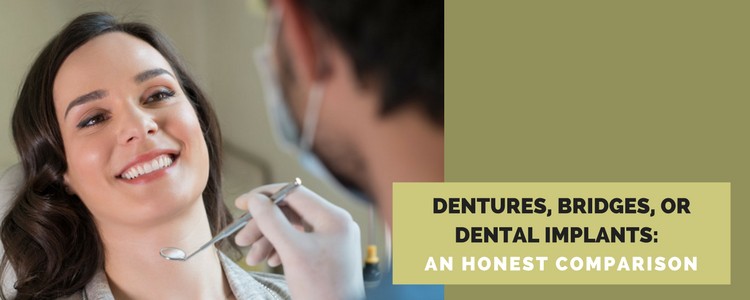1. Grinding Or Clenching Your Teeth
Have you ever woken up and noticed that your jaw is sore? Or maybe you’ve been stressed lately and subconsciously clench your jaw when you’re at work. It can happen whether you are thinking about it or not. There are many reasons for why you may be grinding or clenching your teeth. However, this is a very bad habit for your overall oral health.
Over time, if you grind or clench too frequently, it will wear down the surface of the tooth. Your teeth will become dull. It can wear away the tooth enamel and cause your teeth to become more sensitive when their protective layer is worn away. Excessive clenching and grinding cause your teeth to crack and eventually break.
Your dentist will likely suggest you use a night guard or mouth guard to prevent grinding your teeth when you sleep. This creates a protective guard that prevents you from wearing away your natural teeth. However, recent research shows that night grinding can be the result of an underlying health issue, sleep apnea.
Sleep apnea is difficult to diagnose because it happens when you are sleeping. However, some signs of sleep apnea include snoring, tooth grinding, and feeling like you aren’t rested once you wake up. You can learn more about how to prevent tooth grinding in our similar blog post.
Clenching puts excessive stress and strain on teeth, approximately 500-1000+ psi versus ~300 psi for biting into hard foods. This can cause stress fractures where the enamel at the gum line fractures, leaving a noticeable notch at the gum line. Tooth grinding, besides adding excessive stress will also lead to premature wear, chipping, and breakage.
2. Using Your Teeth To Open Things
It sounds barbaric but it is still a common phenomenon. When you can’t find scissors to open that tough plastic bag, you might consider using your teeth to rip it open. Likewise, that plastic bottle cap that just won’t come off? Bite down and twist.
This is not only dangerous for your teeth, it can also be harmful to your health. It can lead to choking or ingesting inedible materials like plastic. Opening objects with your teeth puts unnecessary pressure on your jaw as well. Some things are more obvious, for example, beer caps, corks on wine bottles, but even biting open soy or ketchup packages put a lot of stress on your front teeth. It can cause fillings to break or even break your enamel.
Chewing on inanimate objects, things like pens, pencils, or even biting your fingernails also puts stress on front teeth and can cause them to break.
Even if your teeth are strong enough to open what you want, it can cause considerable damage to the muscles around your jaw as well. You may end up with a broken or cracked tooth, or bruised jaw as a result!
3. Crunching On Ice Cubes Or Hard Foods
It may be tempting to bite down hard on a carrot, candy or ice cube in your drink. But think again, because this can be incredibly dangerous for your teeth. Try cutting your food or steaming your vegetables so that they are less difficult for your teeth to bite down on. If you have the tendency to crunch on your ice cubes when you’re drinking, try using a straw to drink instead.
Hard foods can wear away your teeth over time, they can slowly reduce their strength and cause cracks in the enamel. These cracks may be hard to see but over time, it can lead to sudden and painful damage. Your teeth may crack or chip off suddenly.
Chewing ice specifically will cause your fillings and teeth to contract and shrink from the cold. This depends on the type of fillings, some shrink more than others. (Silver fillings have an expansion coefficient of ~3x greater than enamel/dentine; white fillings around 1.3 x greater) This can cause your teeth to crack and break because of the hardness of the ice and the difference in shrinkage.
4. Eating Or Drinking Sugary And Acidic Substances
You’ve heard it before, from your dentist, in school growing up and from your parents. But you may not know the reasons behind why sugar is so harmful to your teeth. The truth is, the sugar itself is not bad for your teeth. Additional ingredients in beverages can also wear away at your teeth, however, the sugar isn’t harmful on its own.
Sugar can cause tooth decay and damage to your teeth because of the bacteria that live in your mouth. Your mouth harbors thousands of strains of bacteria. And these bacteria feed off of the sugar you ingest. They cling to your teeth and process the sugar, releasing a highly acidic substance.
This acidity gathers around your teeth and causes plaques to form around your gums and between your teeth. It also wears away your tooth enamel. When your tooth enamel wears away, your teeth are more vulnerable to bacteria and breakage. You will eventually end up with cavities (holes in your teeth) if you eat too much sugar. You can read more about the effects of sugar on teeth to understand the details of bacteria and tooth erosion.
If you are eating a sugary item, try and brush your teeth immediately after. This will displace the bacteria in your mouth and will wash away some of the sugar deposits left around your teeth.
Acidic Foods
Excessive exposure to acidity can happen when people go on extreme juice diets ingesting only citric juices and fruits…the acidity literally erodes the enamel of the teeth. This can affect the aesthetics, the bite/function and can make the teeth very sensitive and even prone to abscesses. Also seen in people with bulimia, or excessive vomiting regurgitation due to medications, illness etc. People will often then brush their teeth to get rid of the taste but they are making things worse by literally spreading the stomach acid all around….best to rinse with baking soda or even plain water first before brushing to get rid of the acidity.
5. Forgetting To Floss
On average, you should brush your teeth twice per day, and floss your teeth once a day. Most people brush their teeth daily, however, they often forget to floss regularly. Flossing can take time but the extra time is worth it when you consider the consequences of not flossing. Many people dislike flossing, It’s time-consuming and tedious. You have to run the floss between each of your teeth and sometimes they can be hard to reach.
However, when you forget to floss your teeth, bacteria and plaques can gather in the sections between your teeth. When you forget to floss, you’re forgetting to clean 40% of your tooth surface area. Make flossing part of your daily routine to prevent cavities, gingivitis and gum disease.
Aggressive brushing and flossing
Brushing and flossing are essential to the health of your teeth. However, if you brush too hard, or you use a hard bristled brush, you can end up doing more damage than good. Your toothbrush can be quite abrasive and flossing your teeth too hard can damage your gums.
6. Lacking Protection In Extreme Sports
When you play extreme sports, you risk injury all the time. However, with the proper padding and protection, you reduce the chances of harming your body. It is important to wear a mouth guard when you play or even when you practice. The mouth guard should be fitted to your specific set of teeth.
When you forget to wear a mouth guard, the slightest impact can knock your teeth out. You can also accidentally bite down on your tongue if you fall or suffer an impact on your face.
7. Ignoring Latent Dental Problems
When you avoid a dental problem, or you don’t take care of a potential problem early, it can lead to severe consequences. Cavities, when they’re small are easy to fix. If they’re left to get bigger they can end up as root canals or even require crowns or extractions. They become a much more expensive problem. Likewise, gum problems, if not dealt with early, can lead to permanent bone loss or tooth loss.
Visit Your Dentist
If you want to know more about how to avoid damaging your teeth with bad habits, bring it up to your dentist in your bi-annual dental appointment. If you have damaged your teeth, you should also talk to your dentist about your options for tooth repair and even replacement. Visit the Vancouver Centre for Cosmetic & Implant Dentistry if you are interested in a dental consultation.
